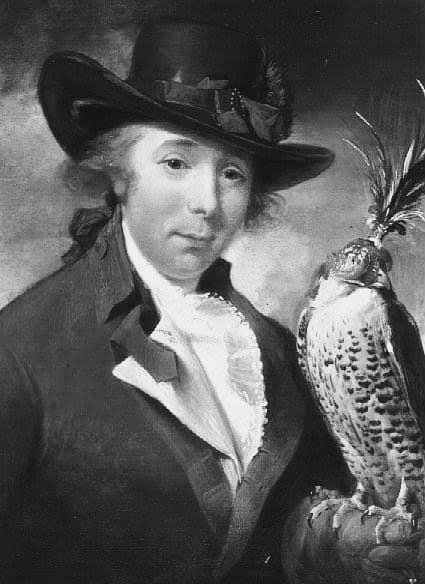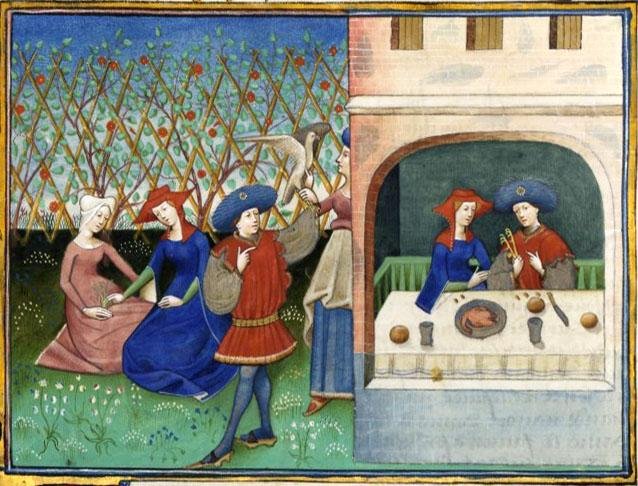The Price of Devotion: Exploring Sacrifice and Transformation in "The Falcon"

Introduction:
Boccaccio's "The Falcon," a novella from The Decameron, transcends the typical romantic comedy to offer a poignant exploration of selfless love and its transformative power. While ostensibly a tale of courtship, the story's central focus lies not on the acquisition of romantic love but on the profound sacrifice made by Federigo degli Alberighi. Through the heartbreaking act of killing his prized falcon to feed Monna Giovanna and her son, Federigo reveals the true depth of his devotion, ultimately prompting a reevaluation of love's value beyond material wealth and social standing, forcing a reconsideration of the nature of true love and its capacity for selflessness.
Summary:
Federigo degli Alberighi, a nobleman deeply in love with Monna Giovanna, squanders his fortune pursuing her affection, ultimately falling into poverty. When Monna Giovanna's son falls ill and expresses a desire to see Federigo's prized falcon, Federigo, in a heartbreaking act of selfless love, kills the bird to provide a meal for the boy and his mother. Deeply moved by this ultimate sacrifice, Monna Giovanna recognizes the true depth of Federigo's devotion and marries him, demonstrating that genuine love transcends material wealth and social barriers.
Analysis:
Boccaccio's "The Falcon" masterfully employs literary devices to explore profound themes. The narrative structure, embedded within The Decameron's larger framework, provides context and enhances the story's impact. The use of irony is particularly effective; Federigo's initial lavish displays of wealth fail to win Monna Giovanna's affection, yet his ultimate act of sacrifice—killing his prized falcon—finally achieves what his fortune could not. The symbolism of the falcon is crucial, representing not only Federigo's former wealth and status but also the pinnacle of his devotion. Its sacrifice underscores the narrative's central theme: the surpassing value of selfless love over material possessions.The detailed descriptions of the falcon and the meal add sensory richness, heightening the emotional impact of Federigo's act.
The motivations of the characters are central to the story's power. Federigo's actions are driven by an unwavering, albeit initially misguided, love for Monna Giovanna. His extravagant gestures, though initially unsuccessful, reveal the depth of his feelings. His final act of sacrificing his most prized possession demonstrates a shift from superficial displays to a profound, selfless devotion. Monna Giovanna's initial coldness stems partly from societal expectations and the constraints of her social standing. Her eventual acceptance of Federigo reflects a recognition of his genuine love and a transcendence of those social barriers.The contrast between their initial interactions and the final scene highlights the transformative power of genuine affection.
The Falcon" remains remarkably relevant today. Its exploration of selfless love and the sacrifices individuals make for those they cherish resonates across cultures and time periods. In a society often obsessed with material wealth, the story serves as a powerful reminder of love's enduring value. Furthermore, its subtle critique of social barriers and the limitations they impose on relationships continues to spark reflection. The story's enduring appeal lies in its ability to evoke strong emotions and prompt readers to contemplate the true nature of love and devotion.
Personal Response:
"The Falcon" deeply resonated with me. What stood out most was the unexpected poignancy of Federigo's sacrifice. While the story begins with the somewhat stereotypical tropes of courtly love and lavish displays of affection, it takes a sharp turn into unexpectedly moving territory. The act of killing the falcon wasn't just a gesture; it was a complete and utter surrender of something deeply precious, a symbol of his former life and his highest aspiration. This unexpected depth of emotion completely captivated me. The ending, while bittersweet, felt satisfying because it highlighted the transformative power of genuine love and selflessness. It wasn't a simple happy ending; it was a complex and nuanced resolution that left me pondering the complexities of human relationships. The story's ability to evoke such a strong emotional response, while presenting a thoughtful exploration of love and sacrifice, made it a truly rewarding reading experience. The stark contrast between Federigo's initial attempts to win Monna Giovanna's heart through wealth and his final, selfless act of sacrifice is particularly effective, making for a powerful and memorable tale.
Conclusion:
The Falcon" offers a timeless exploration of love, sacrifice, and the limitations of societal expectations. Boccaccio masterfully uses irony and symbolism to highlight the transformative power of genuine affection, demonstrating that true love transcends material wealth and social barriers. Federigo's selfless act of sacrificing his prized falcon serves as a powerful testament to the depth of his devotion, ultimately winning Monna Giovanna's heart. The story's enduring relevance stems from its ability to resonate with contemporary readers grappling with similar themes. In a world often driven by materialism and superficiality, "The Falcon" reminds us of the enduring value of selfless love and the importance of recognizing genuine affection beyond superficial displays. It challenges us to reconsider our priorities and the true meaning of devotion in a world that often prioritizes material possessions over heartfelt connections. The story's enduring power lies in its capacity to evoke strong emotions and provoke reflection on the complexities of human relationships and the enduring power of selfless love.






